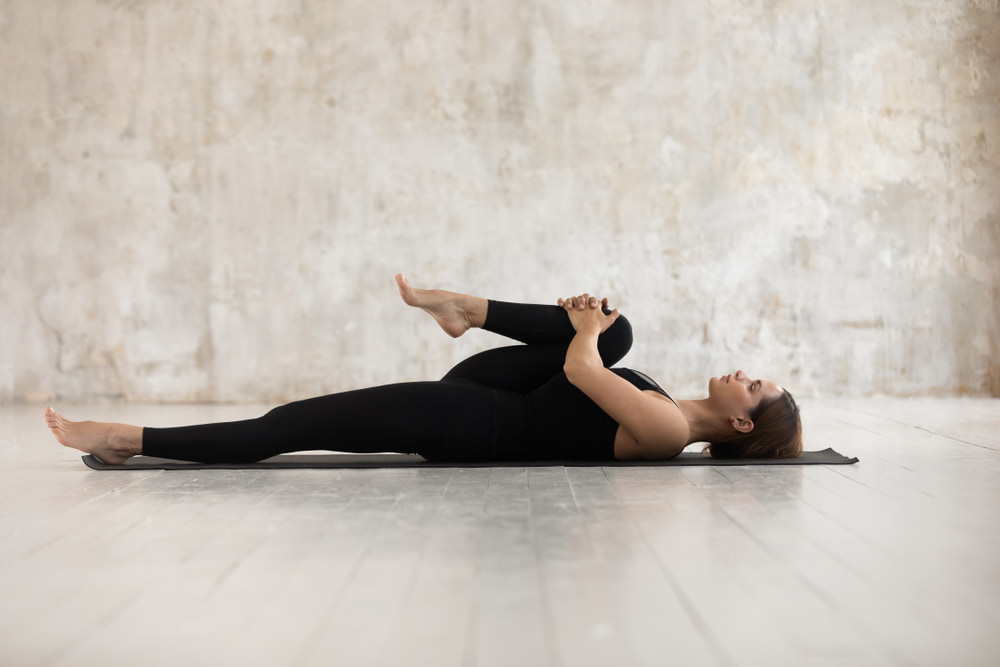Guided meditation for better sleep and relaxation


In today’s fast-paced world, getting quality sleep can be a challenge. Stress, anxiety, and constant digital distractions make it difficult to unwind at the end of the day. If you find yourself tossing and turning at night, guided meditation may be the key to achieving better sleep and relaxation.
Guided meditation for sleep is a mindfulness practice that helps calm the mind, release tension, and prepare the body for deep rest. By focusing on breathing, visualization, and relaxation techniques, you can ease insomnia and enjoy a more restful sleep.
In this guide, we’ll explore how mindfulness meditation can improve your sleep quality, the best techniques to try, and inspiring stories of successful individuals who use meditation to manage stress and anxiety.
Why Guided Meditation Helps with Better Sleep and Relaxation
The Science Behind Guided Meditation for Sleep and Relaxation


Sleep meditation is a scientifically proven method to improve sleep by reducing stress, anxiety, and overactive thinking. When we meditate, the brain shifts from the beta state (associated with alertness and active thinking) to the alpha and theta states, which promote relaxation and deep rest. This transition helps prepare the body and mind for sleep by activating the parasympathetic nervous system, which is responsible for relaxation and recovery.
Research has shown that mindfulness meditation and deep relaxation techniques can increase melatonin production—the hormone that regulates sleep—while decreasing cortisol levels, which is responsible for stress. A study published in JAMA Internal Medicine found that individuals who practised mindfulness meditation experienced significant improvements in sleep quality, reduced insomnia, and decreased symptoms of daytime fatigue.
Top Benefits of Guided Meditation for Deep Sleep
- Calms the Mind: Sleep meditation helps quiet, racing thoughts and mental chatter, allowing the mind to settle before sleep.
- Reduces Stress and Anxiety: By lowering cortisol levels, meditation creates a sense of calm and relaxation, making it easier to fall asleep.
- Promotes Deep Relaxation: Techniques like guided imagery and deep breathing encourage the body to release physical tension and prepare for restful sleep.
- Enhances Sleep Quality: Regular practice improves the duration and depth of sleep, leading to increased energy levels and mental clarity during the day.
- Strengthens the Mind-Body Connection: Meditation helps individuals become more aware of their bodies and emotions, allowing them to recognize and manage stress more effectively.
How Guided Meditation Prepares Your Body for Restful Sleep


- Activates the Parasympathetic Nervous System: This “rest and digest” system counteracts the body’s stress response and promotes relaxation.
- Slows Down Brain Activity: Guided meditation leads the mind into slower brainwave states, such as alpha and theta, which are essential for sleep.
- Encourages Deep Breathing: Conscious breathing techniques regulate the nervous system, slowing the heart rate and lowering blood pressure.
- Promotes a Sense of Presence: By focusing on the present moment, meditation reduces worry about past or future concerns that might interfere with sleep.
Why Guided Meditation is Effective for Insomnia and Restless Nights


Meditation may be a perfect herbal complement for people who have rhythmic difficulties in terms of sleep. The basis of insomnia is the overactivity of the brain and conditions such as stress or anxiety. Sleep meditation really is based on the denial of the reality of disturbing thoughts and real contemplation of the relaxation of the mind. By changing the mind and promoting the relaxation of the body, one can strengthen the relationship between bedtime and peace rather than frustration.
So, meditation, with help to sleep and adoption as a part of your nighttime habit, can be a potent tool for achieving the type of sleep that is thriving and deep. So now, we are going to take a look at meditation techniques that are effective for helping you drift into a productive and restful sleep.
Best Guided Meditation Techniques for Better Sleep
1. Mindfulness Meditation for Better Sleep and Mental Relaxation


Mindfulness meditation is about directing your thoughts to the current time without passing judgment. This way of doing things boosts the general observation of the inner mind of a person by showing the indoor activities and the air inside, which the mind relaxes, and therefore, sleep can follow.
2. Body Scan Relaxation to Calm the Body Before Sleep


This technique involves mentally scanning the body from head to toe, noticing areas of tension, and consciously relaxing them. A guided voice or self-directed practice can help release built-up stress and prepare the body for sleep.
3. Guided Imagery for Deep Sleep and Stress Relief
Guided imagery is a mind-centered process where one is asked to close his eyes and imagine that they are in a beautiful, calm, and peaceful place, such as a quiet forest or a serene ocean. This technique offers the intellect a soothing, worry-free visualization that enhances mindfulness and adaption to relaxation techniques.
4. Deep Breathing Exercises for Guided Relaxation and Restful Sleep


Breathing methods like 4-7-8 and diaphragmatic breathing techniques are also instrumental in bringing the heart rate down and calming the nervous system. As one does deep and slow breaths, the body becomes calm and, thus, conducive to sleep is maintained.
5. Progressive Muscle Relaxation to Unwind and Sleep Better


This method involves tensing and then relaxing different muscle groups throughout the body. It helps release physical stress, allowing the body to feel heavy and ready for deep rest.
How Successful People Use Guided Meditation to Sleep Better
1. Mehedi – Harnessing Meditation for Mental Clarity
As an accomplished entrepreneur, Mehedi wasn’t able to escape the pressure and sleepless nights that come with managing a business. He ascertained that guided meditation was a solution to the rapid changes in his thoughts that allowed him to restore his attention to the original point. After he started to meditate on sleep, he realized that his life began to become more balanced, and he would rise in the morning more refreshed. As part of his spiritual program, he has deep breathing and relaxation with body scanning sessions that let him achieve the needed profound and restoring rest.
2. Shuvo – Overcoming Anxiety Through Meditation
Shuvo, a fitness coach, faced severe anxiety that disrupted his sleep patterns. After experimenting with different methods, he found that guided imagery and mindfulness meditation significantly improved his sleep quality. By visualizing peaceful landscapes and practising conscious breathing before bed, Shuvo was able to reduce nighttime anxiety and enjoy better rest. Today, he encourages his clients to incorporate meditation into their wellness routines to enhance both mental and physical health.
How to Start Your Sleep Meditation Practice


Creating a sleep meditation routine doesn’t have to be complicated. By making a few simple adjustments to your bedtime habits, you can enjoy a deeper, more restful sleep. Follow these steps to get started:
1. Establish a Consistent Bedtime Routine
Try to meditate at the same time every night to signal to your body that it’s time to relax. Consistency helps regulate your circadian rhythm, making it easier to fall asleep naturally.
2. Find a Quiet and Comfortable Space
Choose a peaceful area where you won’t be disturbed. Dim the lights, remove distractions, and make your space as cosy as possible. Soft background music or white noise can enhance relaxation.
3. Use Guided Meditation Resources
If you’re new to meditation, guided sessions from apps like Calm, Headspace, or Insight Timer can be helpful. These apps provide expert-led sleep meditations tailored to your needs.
4. Focus on Deep Breathing
Breathing exercises, such as the 4-7-8 technique, help calm the nervous system. Inhale for four seconds, hold for seven and exhale for eight. This practice slows your heart rate and prepares your body for sleep.
5. Try Progressive Muscle Relaxation
Gently tense and relax different muscle groups, starting from your toes and working your way up to your head. This technique relieves physical tension and helps the body settle into deep relaxation.
6. Stay Patient and Consistent
Like any habit, meditation takes time to become effective. Stick with your practice for a few weeks to experience noticeable improvements in sleep quality.
Embrace Meditation for Better Sleep


Regular sleep is necessary for the healthy functioning of the body and the mind, and meditation can be a great way to boost sleep quality. Whether you are under pressure, suffer from anxiety, or sleep more than you should, including meditation as part of your every evening can drastically change things. Guided meditation for better sleep and relaxation – gently soothe your mind and body for a deep and restful night’s sleep.
One way to ultimate goal is to visualize deep breaths or mindfulness practices; thus, you may get those techniques into a relaxing bedtime routine, which will help you to calm down the hectic and unstable life in the background and prepare you for a deep sleep. The important thing is to be consistent—consistent daily efforts can lead to critical lifelong changes. Guided meditation for better sleep and relaxation – unwind your body, ease your thoughts, and prepare for a peaceful night.
If you’re not a seasoned meditator, start with short sessions and gradually practice with guided apps such as GrowUp and Meditation Music & Sounds High Quality. By and by, you will observe changes in your sleep, vitality, and holistic health. Guided meditation for better sleep and relaxation – a step-by-step practice to calm your mind and drift into restful sleep.
Why don’t you start with it just tonight? As you close your eyes and breathe deeply, allow meditation to take you into a calming and restful state. Good night, sleep tight.









